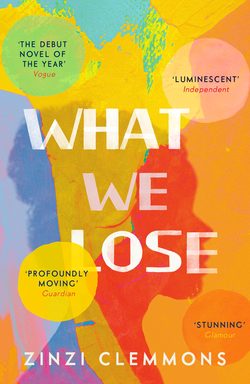Читать книгу What We Lose - Zinzi Clemmons - Страница 9
ОглавлениеI was born as apartheid was dying. In South Africa, fervent national pride and multiculturalism were taking hold as the new national policy. I was born in America, my mother was born in Johannesburg, and my father in New York.
My mother’s entire family still lives within twenty minutes of each other. They are middle- to upper-class coloureds—mixed race, not black. Although my mom involved herself in some of the political unrest (she proudly saved a newspaper clipping from 1970 that has a photograph prominently featuring a handwritten sign she made), my family was quiet and generally avoided the brunt of the conflict.
My father was raised in New York and went to college in Philadelphia. In the year after his graduation, he went on a trip volunteering in Botswana. My mother was there, partying with some of her militant friends. Ostensibly, they were there collecting literature to distribute back home.
“Your mother was inescapable,” my father told me. Not that she was ravishing, or enchanting, but that he simply couldn’t get away from her. “When I went back to Philadelphia, she called me. And she called me again. When I called her back, she asked if she could come to America to live with me.”
My mother befriended people aggressively. She was extremely opinionated and often abrasive. I sometimes hated the rough manner in which she dealt with people. Her favorite words were four-lettered, and she liked to yell at waiters in restaurants and people in line at stores.
My mother’s roots were deep and strong. Her relationships with others were resilient; she had friendships that persisted over decades, oceans, breakups. Her best friends were all former boyfriends.
Most of her friends (and she had many) spoke of her offending them shortly after they met. One story my mother told often was when one of her best friends threatened to commit suicide after her boyfriend left her. She went to my mother for comfort, and my mother slapped her across the face, as hard as she could. Her friend’s face was bruised for a week. My mother used this story as an illustration of how to be a good friend.
She had close bonds with the other black nurses at her job, with whom she could affect a West Philly accent to match the best of them. And she had a coterie of South African expats from our area, as well as some from Washington, D.C., and Boston, whom she sometimes invited to our house for dinner or to watch a soccer game. They called our house at all hours and begged my mother for medical advice in Afrikaans or Zulu. Their child had a fever, or their mother-in-law was acting crazy again—was it dementia, or just moods? Many of them lacked green cards and insurance. My mother was the reliable center of their ad hoc community.
My father was a mathematics professor for many years before he was promoted to the head of the department at the college. He was flown around the country to give talks and make inflated speeches about their research. My mother migrated upward from nursing assistant to head nurse at the university hospital.
